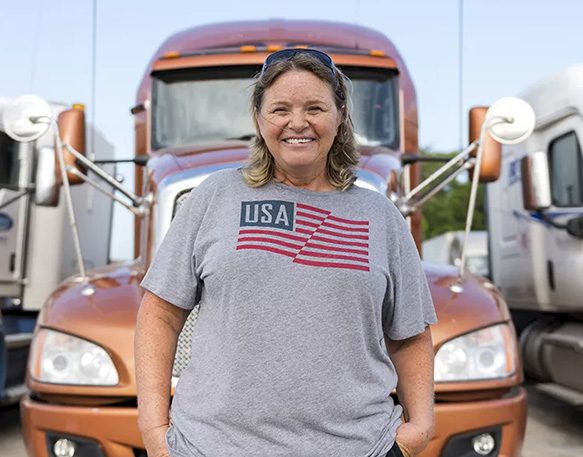The costs of truck insurance can be a complex puzzle for many fleet owners and independent operators within the transportation industry. With premiums varying significantly based on a multitude of factors, understanding and budgeting for truck insurance becomes not just a matter of compliance, but also a strategic aspect of business management that directly impacts the bottom line. This article delves into the intricate world of truck insurance, highlighting key components of cost, risk assessment, and effective strategies for budgeting and risk management.
Cost breakdown: Understanding liability, collision, comprehensive, and cargo coverage
To better understand the cost of truck insurance, we need to look closely at the main elements that form a complete policy. Each part of the policy has a specific role, providing different levels of protection for truck drivers from the various risks they may encounter both on and off the road.
Liability coverage: The foundation of truck insurance
Liability coverage is non-negotiable and legally required in most jurisdictions, designed to cover costs associated with damages or injuries to others resulting from accidents where the truck driver is at fault. This coverage is fundamental, protecting the truck operator or owner from significant financial losses that can arise from lawsuits or claims.
Additionally, liability insurance typically covers legal fees, settlement costs, and medical bills of the injured parties. However, the cost of liability coverage can vary dramatically based on the operator’s driving history, the type of cargo transported, and where the truck operates.
Collision coverage: Protecting your assets on the road
Collision coverage steps in to repair or replace the insured truck if it’s damaged in an accident, regardless of fault. This type of insurance is crucial for mitigating financial losses from accidents that damage the truck, ensuring that operators can quickly return to business with minimal downtime. The cost of collision coverage can depend on the truck’s value, with higher-value trucks typically incurring higher premiums due to the increased cost of repairs or replacement.
Comprehensive coverage: Beyond collision
Comprehensive coverage offers protection against a wide range of non-collision incidents that can cause damage to the truck, such as theft, vandalism, fire, and natural disasters like floods or hurricanes. This coverage is essential for operators in regions prone to severe weather or high crime rates, providing peace of mind that their investment is protected against unforeseen events. Premiums for comprehensive coverage will vary based on the truck’s location, value, and the deductible chosen by the policyholder.
Cargo coverage: Securing your freight
Cargo coverage is pivotal for safeguarding the goods being transported against loss, damage, or theft during transit. This coverage is not only a requirement for most commercial shipping contracts but also a critical component for maintaining trust with clients. The cost of cargo coverage can fluctuate based on the type of goods being transported, their value, and the transport distance. High-value cargo or those susceptible to theft, such as electronics or pharmaceuticals, typically result in higher premiums.
Risk assessment: Evaluating factors impacting insurance costs
Insurers use a detailed process to assess risk, which involves analyzing past data and using predictive models to estimate how likely it is that a claim will be made. We’ll look closely at the key factors that affect the cost of truck insurance, such as driving records, types of vehicles, and the nature of the cargo. This will give you a clearer understanding of how these elements influence insurance premiums.
Driving record
The driving record of truck operators is a primary indicator of risk. A history of traffic violations, accidents, or serious offenses such as DUIs can significantly increase the perception of risk, leading to higher premiums. Insurers view a clean driving record as a sign of a responsible and safe driver, which correlates with a lower likelihood of incidents that could lead to claims. Consequently, maintaining a clean driving record is one of the most direct ways drivers can influence their insurance costs favorably.
Vehicle type
The type of vehicle being insured is another crucial factor in the risk assessment process. Different types of trucks have varying risk profiles based on their design, use, and the statistical likelihood of being involved in an accident or sustaining significant damage. For example, larger vehicles such as semi-trucks or heavy haulers typically incur higher premiums due to the greater potential for damage in an accident. Additionally, newer models equipped with advanced safety features might be eligible for lower rates, reflecting the reduced risk of accidents and theft.
Cargo characteristics
The nature and value of the cargo being transported significantly influence insurance costs. High-value cargo, such as electronics, pharmaceuticals, or perishable goods, presents a higher risk due to the potential for significant financial loss in the event of theft, damage, or spoilage. Insurers assess not only the value but also the vulnerability of the cargo to these risks, adjusting premiums accordingly.
Specialized cargo requiring unique handling or storage conditions, such as hazardous materials or temperature-controlled goods, further complicates the risk assessment, often necessitating higher coverage costs.
The interplay of factors in risk assessment
The assessment of risk and the determination of insurance premiums are not solely based on individual factors but on the interplay between them. For instance, a truck with a high safety rating (vehicle type) driven by a carrier with a spotless driving record, transporting low-risk cargo, would represent a considerably lower risk profile than high-value cargo being transported by a driver with multiple violations. Insurers meticulously analyze these factors in combination to arrive at a premium that accurately reflects the level of risk.
Insurance shopping tips: Comparing quotes, coverage options, and policy terms
When navigating the complex terrain of truck insurance, carriers are faced with many choices and considerations. The task of comparing quotes, coverage options, and policy terms across different providers is critical for securing optimal protection at a viable cost.
Understanding the components of a quote
A truck insurance quote is more than just a price—it’s a detailed outline of the coverage an insurer offers, including premiums, deductibles, coverage limits, and exclusions. Understanding each component is vital:
- Premiums represent the cost of the policy, typically paid monthly or annually.
- Deductibles are out-of-pocket costs the policyholder must pay before the insurance coverage kicks in after a claim.
- Coverage limits define the maximum amount an insurer will pay for a claim under the policy.
- Exclusions detail what is not covered by the policy, critical for understanding the scope of protection.
Comparing coverage options
Different insurers offer various coverage options tailored to specific needs. When comparing these options, consider:
- Liability coverage: Assess the provided liability limits and whether they meet your operational risks.
- Physical damage coverage: Look at the specifics of collision and comprehensive coverage, including any special conditions or exclusions.
- Cargo coverage: Ensure the coverage matches the type and value of the cargo you typically transport.
- Additional coverages: Evaluate optional coverages, such as roadside assistance or rental reimbursement, for their relevance to your operations.
Evaluating policy terms
Policy terms can greatly affect how coverage applies in the event of a claim. Pay attention to:
- Claim process: Understand the steps required to file a claim, the average resolution time, and any customer service guarantees.
- Policy flexibility: Consider how easily the policy can be adjusted as your business grows or changes, such as adding or removing vehicles.
- Renewal process: Be aware of how the renewal process works, including any automatic increases in coverage limits or premiums.
Budgeting strategies: Allocating funds for insurance premiums, deductibles, and emergency expenses
Managing the costs of truck insurance involves more than just paying monthly or annual premiums. It requires a careful budgeting strategy that prepares for unexpected expenses while maintaining the financial stability of your business.
Understanding and planning for premiums
Insurance premiums, while predictable expenses, can represent a significant portion of a trucking operation’s budget. Here are some things you can do to effectively manage these costs:
- Conduct annual insurance policy reviews to ensure that coverage remains aligned with business needs and that premiums are competitive. Adjustments in coverage, deductibles, or policy terms can result in cost savings.
- Explore payment options. Some insurers offer lower overall costs for annual payments compared to monthly installments, which can help save money in the long term.
- Allocate a specific portion of the monthly budget towards insurance premiums, treating this expense with the same priority as other operational costs like fuel and maintenance.
Managing deductibles
Deductibles are a critical component of insurance policies that directly affect premium costs. A higher deductible usually means lower premium payments, but it also requires the operator to pay more out-of-pocket in the event of a claim. To budget effectively:
- Establish an emergency fund dedicated to covering deductibles. This fund should be readily accessible and sufficiently stocked to cover the highest deductible in the policies.
- Assess the level of risk you’re willing to assume. If the operation has a good safety record and claims history, opting for a higher deductible might be financially beneficial, provided the emergency fund can cover such deductibles when needed.
Budgeting for emergency expenses
Beyond deductibles, trucking operations can face various emergency expenses related to accidents or unforeseen events not covered under standard insurance policies. Planning for these contingencies is essential:
- Contingency budgeting: Allocate a portion of the budget to an emergency fund separate from the one established for deductibles. This fund can cover unexpected costs such as temporary truck rentals, non-covered repair work, or additional expenses arising from an accident.
- Regular contributions: Treat the emergency fund as a recurring budget item, with regular contributions similar to savings. The goal is to build a buffer that can sustain the business through unforeseen financial challenges without resorting to loans or impacting operational capacity.
Risk management practices: Implementing safety protocols, driver training programs, and preventive maintenance
Implementing safety protocols, engaging in driver training programs, and adhering to preventive maintenance schedules are strategies that not only promote safer operations but also potentially lower insurance premiums by demonstrating a proactive approach to risk reduction. Let’s explore how these practices contribute to a thorough risk management strategy.
Implementing robust safety protocols
Safety protocols are essential for minimizing the likelihood of accidents and ensuring compliance with regulatory standards. Effective safety measures include:
- Comprehensive safety policies: Develop and enforce a set of safety policies that cover all aspects of operation, from vehicle operation and maintenance to handling hazardous materials and emergency procedures.
- Regular safety meetings: Hold regular meetings with drivers and staff to review safety protocols, discuss new regulations, and address any safety concerns or incidents.
- Safety technology: Incorporate advanced safety technologies into vehicles, such as telematics systems, dash cams, and advanced driver-assistance systems (ADAS), to monitor driving behaviors and prevent accidents.
Driver training programs
Well-trained drivers are less likely to be involved in accidents, which can directly impact insurance costs. Key aspects of an effective driver training program include:
- Initial and ongoing training: Beyond basic training for new hires, provide ongoing education on safe driving practices, updates on regulations, and training on new equipment or technologies.
- Specialized training for specific risks: Offer specialized training sessions focused on specific risks associated with the types of cargo transported or particular driving conditions, like winter driving techniques.
- Incentives for safe driving: Implement a rewards program to incentivize drivers for safe driving records, such as bonuses, recognition, or career advancement opportunities.
Preventive maintenance
A well-maintained fleet is less prone to breakdowns and accidents, contributing to lower risk assessments from insurers. Preventive maintenance encompasses:
- Regular inspections and servicing: Adhere to a strict schedule of vehicle inspections and servicing to ensure that all trucks are in optimal condition. This includes regular checks on brakes, tires, lights, and other critical systems.
- Pre-trip inspections: Encourage drivers to perform pre-trip inspections as part of their daily routine to identify and address potential issues before they lead to breakdowns or accidents.
- Maintenance records: Maintain detailed records of all maintenance activities. These records can be valuable in negotiations with insurance providers, demonstrating the operation’s commitment to vehicle safety and reliability.




